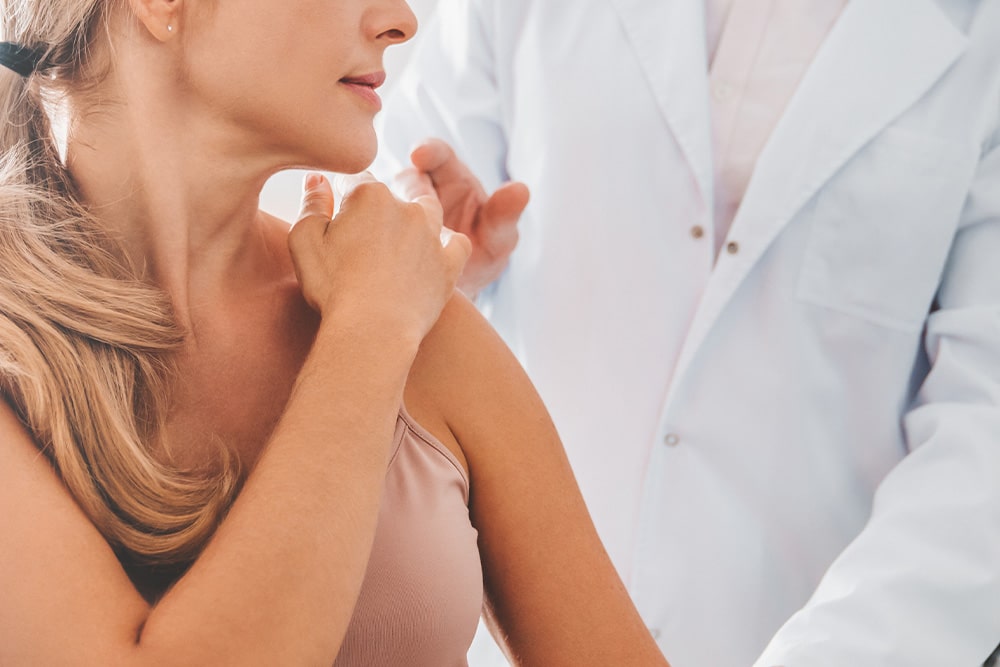Acromioplasty
Acromioplasty is the treatment for shoulder or subacromial impingement
Acromioplasty
Acromioclavicular (AC) joint stabilisation is the process used to fix collarbone dislocation.

What is acromioplasty?
Acromioplasty is a surgical procedure that involves shaving away part of the acromion bone to create space for shoulder tendons. This procedure is a well-established treatment for rotator cuff disease and shoulder impingement – an excessive and repeating contact between shoulder tendons and the acromion. Subacromial impingement is one of the most common causes of shoulder pain. People who do a lot of overhead activity at work or play a lot of overhead sports are prone to this condition.
Pain at the top or side of the arm bone, especially when lifting the arm above the head, is the most common symptom of shoulder impingement. However, it’s possible that you will experience pain in a number of different situations; for example, when reaching behind your back, lying on your affected side, or doing anything that puts a strain on your arms or shoulders. Typically patients will experience a painful arc of motion from 60-120 degrees of elevation and have difficulty sleeping on that side.
The process of diagnosing either shoulder impingement syndrome or rotator cuff disease begins with a detailed history and physical examination. At this stage, Dr Cheriachan will test your range of motion and perform specific tests to assess for impingement. Then, an X-ray will be taken to explore potential causes and contributors; for example, arthritis, prior injuries, and bone spurs. If shoulder impingement syndrome is suspected, Dr Cheriachan may arrange a local anaesthetic injection to confirm this is the area of concern.
Physiotherapy and targeted exercises are the mainstay of shoulder impingement treatment. Shoulder impingement is most often caused by an imbalance of muscles supporting the shoulder. Dr Cheriachan may also refer you to have a steroid injection into the area to help reduce the inflammation and pain.
Surgery is rarely recommended and is reserved for cases which do not respond to non-operative measures and physiotherapy. Surgery may be recommended if there are large bone spurs causing the impingement.
In order to create more space under the acromion and prevent future inflammation, the bone spur which causes the irritation is removed. This allows the tendons to move without impingement. The treatment is usually done by keyhole surgery, which involves making small incisions around the shoulder and inserting a microscopic camera to guide the operation.
The goal of every acromioplasty procedure is to restore pain-free movement in the arm and shoulder. If non-surgical treatment with anti-inflammatory pain medication, steroid injections and physiotherapy is successful you may experience an increased range of motion and decreased pain within a few months. Alternatively, if, after twelve months, you are still experiencing pain or limited shoulder function, surgery may be necessary. With surgery and post operative physiotherapy you can expect to regain full pain-free motion within 3-6 months.
Whilst the majority of people who undergo shoulder surgery do well and are very happy with their function and result, there are risks which are specific to shoulder surgery in addition to the general risks of surgery which is listed in the FAQ section of this website.
The specific risks of acromioplasty surgery is damage to the rotator cuff tendons, taking away too little of the bone spur. This may result in some symptoms remaining. Taking away too much bone may result in increased likelihood of fracturing the acromion in the future.
These complications are rare and Dr Cheriachan will discuss these risks with you in detail during your consultation.
Following surgery you will be provided with a sling which you will wear for comfort and pain relief only. Dr Cheriachan will encourage you to commence range of motion exercises immediately. Physiotherapy can be resumed as it is an important part of the recovery process and reduces the likelihood of developing a frozen shoulder.
You will be able to return to driving and work once your pain and motion allows.
Preparing for your visit
Dr Cheriachan consults from Norwest on Wednesdays and Blacktown on Mondays and Thursdays.
Your first visit will be used to carefully assess your condition as well as gathering all related health information. It is important that you bring all relevant documents including scans and x-rays. We also ask that you wear clothing that allows freedom of movement as your visit will include a physical examination.